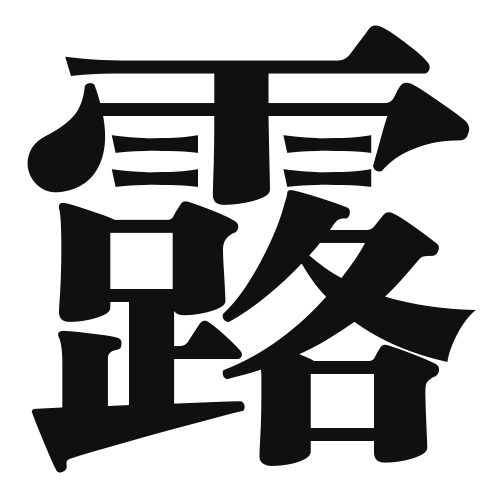1. Overview of Meaning
The kanji “露” (ro) primarily means “dew” or “expose.” It can refer to the moisture that forms on surfaces in the early morning or the act of revealing something.
2. Formation and Radical
Formation of the Kanji: The kanji “露” is a phonetic-ideographic character (形声文字). It combines the meaning of “exposure” with a phonetic component that suggests its pronunciation.
Radical: The radical for “露” is “雨” (rain), which indicates its connection to weather and moisture.
3. Examples of Usage
Common Words and Phrases:
- 露天 (roten) – open-air
- 露出 (roshutsu) – exposure
Example Sentences in Daily Conversation:
- 今朝、草の上に露がたくさんあった。 (This morning, there was a lot of dew on the grass.)
- 彼は自分の感情を露にした。 (He exposed his feelings.)
4. Synonyms and Antonyms
Similar Kanji:
- 霧 (kiri) – fog; while both refer to moisture, “霧” indicates a thicker, more obscuring form of water vapor.
Antonyms:
- 隠す (kakusu) – to hide; this represents the opposite action of exposing or revealing.
5. Cultural and Historical Background
Connection to Japanese Culture: The concept of “露” is often associated with the beauty of nature, particularly in poetry and art, where dew symbolizes freshness and the transient nature of life.
Proverbs and Idioms: One common saying is “露の如し” (ro no gotoshi), which means “like dew,” emphasizing the fleeting nature of life and beauty.
